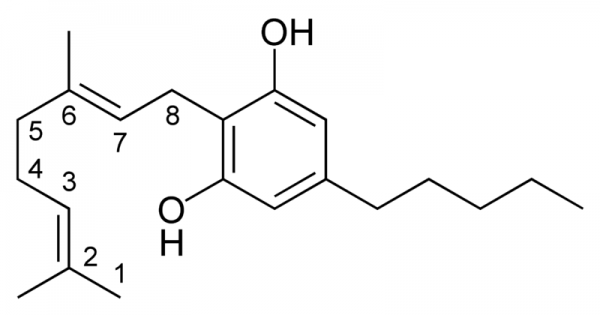CBG
Cannabinoids – CBG
Cannabigerol (CBG) is a non-psychoactive cannabinoid found mainly in industrial strains that are low in THC.
It is formed when cannabigerolic acid (CBGA) loses its carboxy group due to heat and breaks down into CBG, but this particular acid is also precursor for THC, CBD and CBC, because it can also transform into THCA, CBDA and CBCA. This is due to the work of plant’s own enzymes called synthases (THC-synthase, CBD-synthase, CBG-synthase).
Where to Look for It
It is believed that industrial hemp strains have so called recessive gene that prevents the plants from producing some of the synthases, thus leaving more space for CBG formation (some CBG-dominant strains may contain up to 94 percent).
Medicinal Properties
There has not been much research done on healing effects of cannabigerol so far, nonetheless the results we have are very promising.
For example, a recent research from 2015 has shown that CBG had positive neuroprotective effects on laboratory mice with Huntington’s disease, while other studies suggest that this cannabinoid can be very effective in the treatment of inflammatory bowel diseases, such as Crohn’s disease and colitis, or even inhibit colon carcinogenesis. A study from 2009 also indicated that CBG is potentially useful in the treatment of glaucoma.

